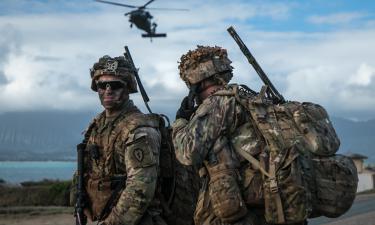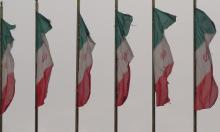U.N. resolution calling for presidential elections in Lebanon
Lebanese lawmakers amended their constitution to keep pro-Syrian President Emile Lahoud in office, boldly reaffirming their loyalty to Damascus and defying a U.N. resolution calling for presidential elections. A day earlier, the United States and France succeeded in pushing a resolution through a divided U.N. Security council resolution calling on the Lebanese Parliament to not skip a presidential election and to pressure Syria to loosen its grip on Lebanese politics. Although the U.N. resolution has no enforcement clause, the parliamentary action viewed here as a challenge to Washington, the driving force behind the resolution could also put Lebanon on a collision course with the Security Council. In a show of hands, legislators voted 96-29 in favor of a constitutional amendment needed to allow Lahoud, whose term expires Nov. 24, to stay in power until 2007. Lahoud's longtime rival, Prime Minister Rafik Hariri, introduced the measure, abruptly dropping his objection under pressure from Syria. "This is a sad scene and a black day in the history of Lebanon," said opposition lawmaker Nayla Moawwad, a former first lady. But legislator Mohammed Raad, who leads the nine-member bloc of Hezbollah, the Lebanese guerrilla group which the United States regards as terrorist, said the vote was "to support Lahoud and to reject the policies of the American administration in the region." The amendment to the constitution, which bars the president from seeking a second consecutive term, allows for a one-time exception to enable Lahoud to remain in office. An election would have been a rarity in the Arab world, where leaders change only by death or forced removal from office, publishes ABCNEWS. According to Reuters, Lebanese editorials on Saturday rued parliament's decision to amend the constitution to extend Syrian-backed President Emile Lahoud's term despite strong objections from Washington and the United Nations. Parliament voted on Friday to keep Lahoud in office for another three years, a decision widely seen as imposed by Syria, the main power broker in Lebanon. "Even the weather was black, like the depressed faces of the people," said a front page editorial by Jibran Tweini in the influential Beirut daily An-Nahar, which carried an "honor roll" of the 29 deputies who voted against the extension. "It was another Good Friday, just as Christ was crucified on Good Friday, yesterday was a Good Friday on which democracy and the honor of the people were crucified." Ninety-six deputies voted in favor of the constitutional amendment, with three absent. White House spokesman Scott McClellan said in a statement Damascus had pressured, threatened and intimidated officials. The leader of the Hizbullah group on Saturday rejected a UN resolution calling for his guerilla army to be dismantled, saying the world body's call served Israeli interests. Sheik Hassan Nasrallah also defended the presence of Syrian forces in Lebanon, a situation that began when Damascus deployed troops to Lebanon in 1976 during a civil war and has attracted recent criticism from the United States and France. "We don't want a withdrawal of Syrian forces at this time," Nasrallah told a Hizbullah rally in his south Beirut stronghold, saying the presence of about 20,000 Syrian soldiers had helped Lebanon consolidate its security after the devastating 1975-90 civil war. On Thursday, the UN Security Council narrowly approved a resolution backed by Washington and Paris aimed at pressuring Lebanon to reject a second term for pro-Syrian President Emile Lahoud and calling for an immediate withdrawal of all its foreign forces - an indirect reference to Syrian troops. The resolution also called for "the disbanding and disarmament of all Lebanese and non-Lebanese militias", reports the Jerusalem Post.
Read earlier news stories by PRAVDA.Ru
Subscribe to Pravda.Ru Telegram channel, Facebook, RSS!





